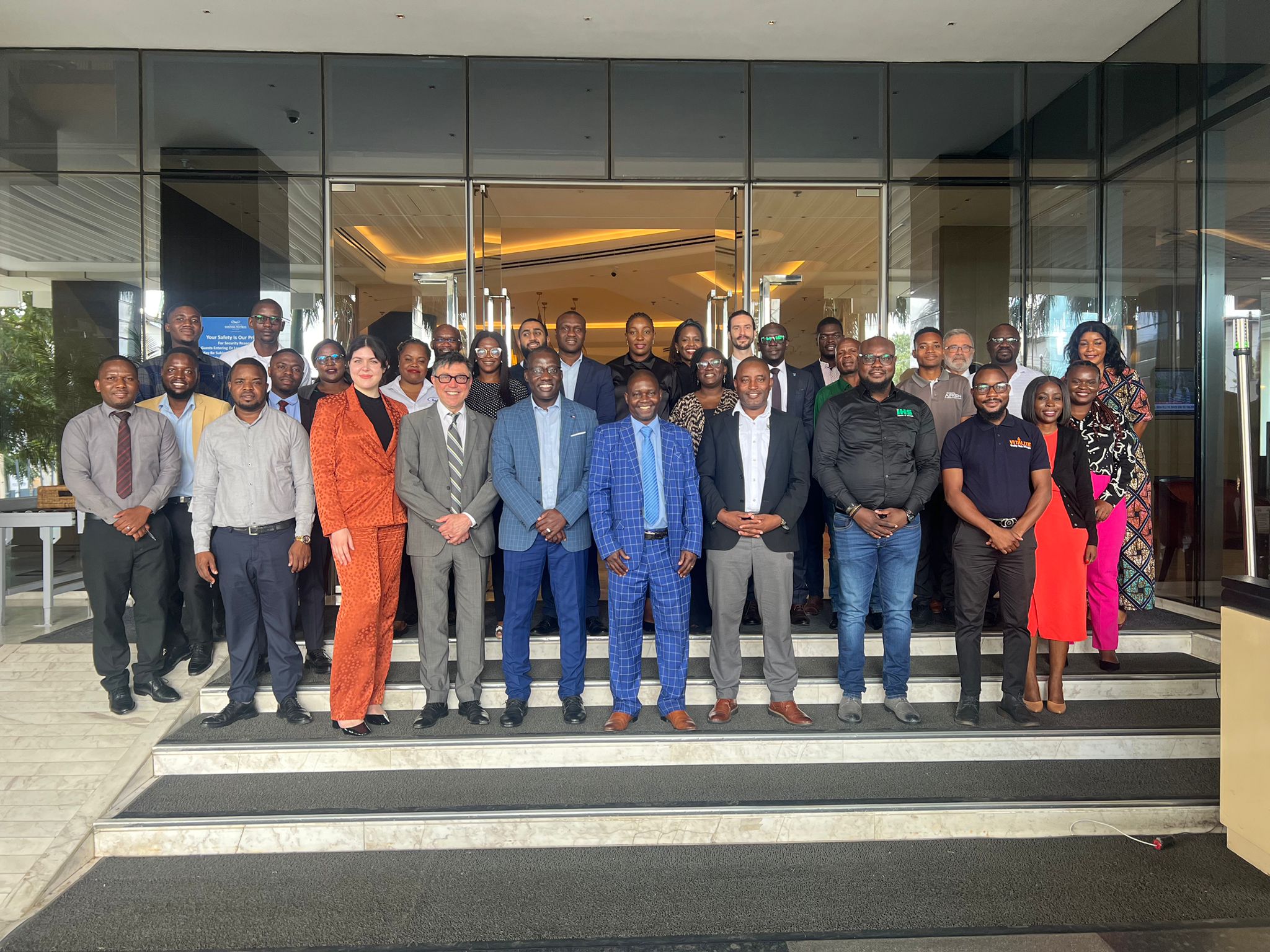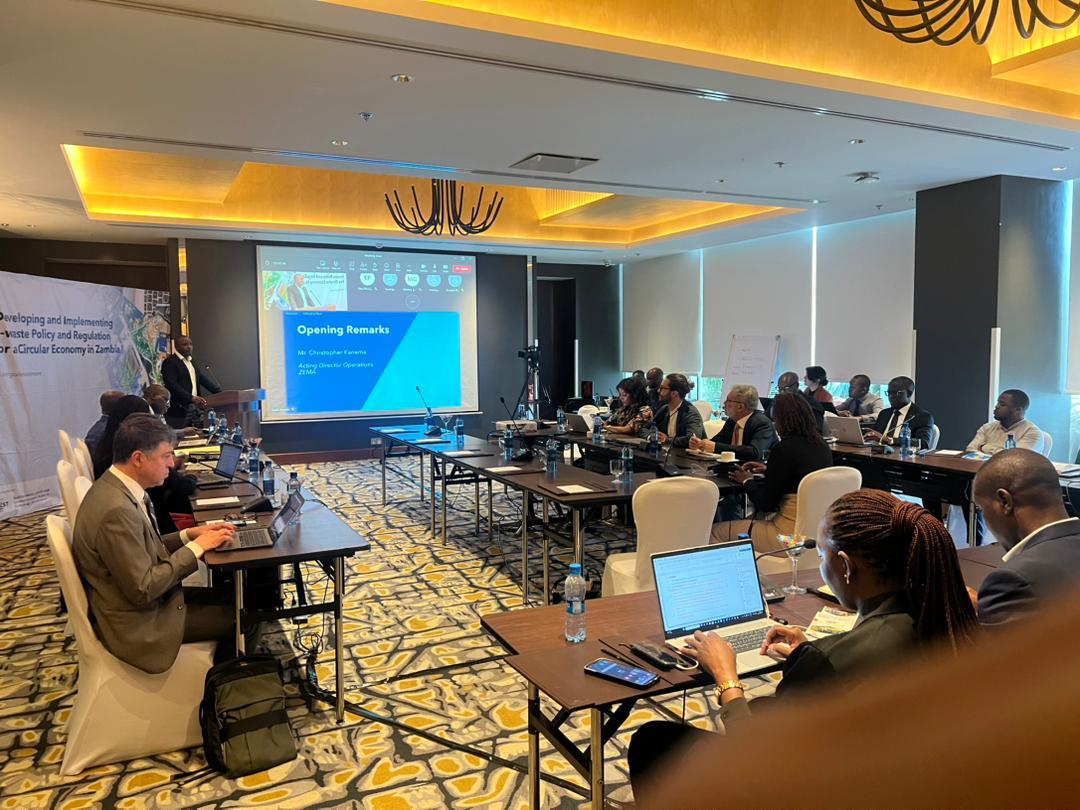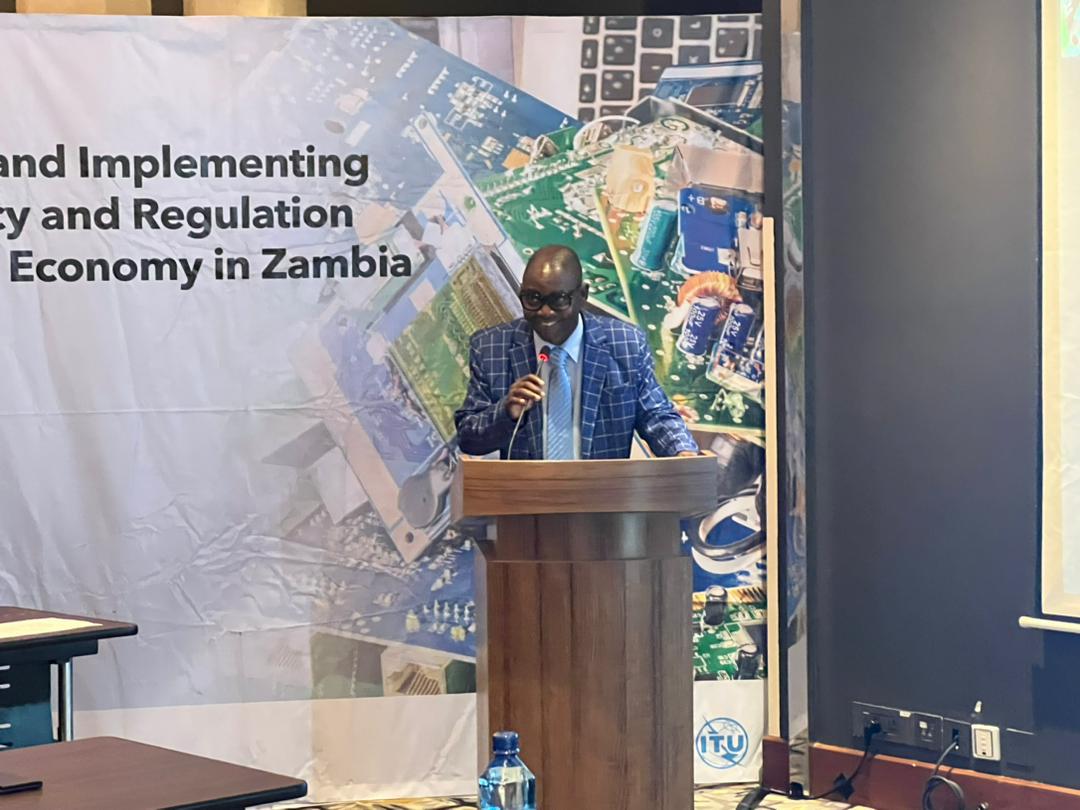 Participants of the Private Sector Stakeholder Consultation, 26 March 2024, Lusaka, Zambia.
Participants of the Private Sector Stakeholder Consultation, 26 March 2024, Lusaka, Zambia.
BACKGROUND
The Government of Zambia is committed to creating a circular economy for electronics. New regulations on e-waste management are being developed around the principle of an extended producer responsibility (EPR) regulation for electronics and packaging materials. ITU is assisting the Government of Zambia in implementing EPR regulations on e-waste by supporting legal, administrative, and financial modalities.
This technical assistance will be three-fold. The legal component will help prepare national EPR regulations for electrical and electronic equipment (EEE), align them with e-waste regulations, and create implementation guidelines. The financial component will study e-waste management costs, propose EPR fees, engage producers, and edit a draft producer responsibility organization (PRO) work plan for Zambia. The administrative component will focus on producer engagement, enforcement, system implementation.

| 
|